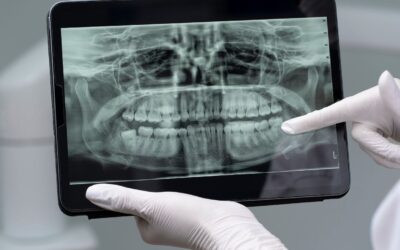Dental implants are often considered the gold standard for tooth replacement, providing a stable, permanent solution for missing teeth. However, in some cases, individuals may want to replace their implants with dentures. Whether it’s for comfort, aesthetic reasons, or other personal factors, this transition is possible, but it’s important to understand the entire process.
In this article, we’ll dive into the key aspects of replacing dental implants with dentures, discuss when and why this might be a good idea, and walk you through the steps involved. Additionally, we’ll explore potential risks, the costs associated with the procedure, and how to care for your new dentures.
Can Dental Implants Be Removed and Replaced with Dentures?
While dental implants are designed to be a permanent solution, there are cases where removing implants and replacing them with dentures might be a viable option. The process of switching from implants to dentures typically involves surgery and a few important considerations.
Understanding the Process of Replacing Implants with Dentures
Why Would You Consider Replacing Implants with Dentures?
- Some individuals may experience discomfort, changes in lifestyle, or a shift in aesthetic preferences that leads them to prefer dentures.
- Dentures might be a more affordable option for those who cannot afford to maintain their implants over time.
- Individuals with significant bone loss might find dentures to be a better fit if their jaw structure has been compromised by the implants.
The Steps Involved in Removing Implants and Replacing Them with Dentures
- Initial Consultation with Your Dentist: You’ll need to discuss the reasons behind wanting to switch to dentures. Your dentist will evaluate your oral health, take X-rays, and assess bone density and structure.
- Removal of the Implants: Implants are surgically removed. This process can be complex if the implants have been in place for years, as the surrounding bone may need to be reshaped or rebuilt.
- Bone Grafting (If Necessary): If the bone structure is insufficient, a bone graft might be needed to provide the stability required for dentures.
- Dentures Fitting: Once your jaw has healed and is ready, your dentist will take impressions for dentures, which are custom-made to fit your mouth comfortably.
- Adjustment Period: After the dentures are fitted, there will likely be follow-up visits to adjust the fit and ensure comfort.
Benefits of Replacing Implants with Dentures
There are several reasons why someone might prefer dentures over implants, despite implants offering long-term benefits. Here are some reasons why dentures might be more appealing in certain situations.
Cost-Effective:
Dentures are typically less expensive than dental implants. For individuals without dental insurance or who cannot afford the high cost of implants, dentures provide a more affordable alternative.
Non-Invasive:
The removal of dental implants requires surgery, but dentures are a non-invasive alternative that doesn’t require surgery once the implants are removed.
Easier to Adjust and Repair:
Dentures can be easily adjusted or replaced compared to dental implants, which require a more complex and costly procedure if problems arise.
Can Be Removed for Cleaning:
Dentures are removable, which allows for easier cleaning and maintenance.
The Risks and Complications of Switching from Implants to Dentures
Like any dental procedure, switching from implants to dentures comes with potential risks. It’s essential to weigh these risks before making a decision.
Possible Risks
-
Bone Loss: If dental implants are removed, the bone surrounding the implants may deteriorate over time if not addressed with bone grafting.
-
Implant Failure: In rare cases, implants can fail and require removal before dentures are an option. However, this can complicate the transition process.
-
Discomfort During Transition: There is often a period of discomfort when transitioning from implants to dentures. This is especially true if bone grafting is necessary or if the dentures do not fit perfectly from the start.
Why Some People Choose Dentures Over Implants
Choosing dentures over implants often comes down to personal preference, lifestyle, and specific dental health issues.
Reasons to Choose Dentures
-
Age-Related Factors: Older adults may find dentures more comfortable than implants, as bone density tends to decrease with age.
-
Financial Considerations: The cost of dental implants is significantly higher than dentures. For individuals on a fixed budget, dentures might be a more realistic option.
-
Ease of Use: Dentures require less maintenance in terms of medical visits and cleaning compared to implants, which often require professional cleanings and checks.
Can Dental Implants Be Removed and Replaced with Dentures? A Detailed Look at the Transition Process
Switching from implants to dentures is a detailed process. Here’s a closer look at what the transition involves.
Step-by-Step Guide to Replacing Implants with Dentures
-
Consultation and Planning: Your dentist will assess the condition of your implants, your gums, and your overall oral health to determine whether you are a candidate for dentures.
-
Removal of Implants: This may involve a minor surgical procedure to remove the implants. The dentist may need to clean and shape the bone to prepare for dentures.
-
Bone Grafting: If bone loss has occurred, grafting may be needed to restore bone structure.
-
Impression Taking for Dentures: After the gums have healed, impressions are taken for the dentures, which are custom-designed for your mouth.
-
Fitting and Adjustments: Once your dentures are created, they will be fitted. The dentist will make necessary adjustments for comfort and fit.
FAQs
1. Can dental implants be removed easily?
Removing dental implants is not always easy and requires surgical intervention. The procedure depends on how long the implants have been in place and the condition of the surrounding bone.
2. What are the risks associated with replacing implants with dentures?
The main risks include bone loss, discomfort during the transition, and potential complications if proper care isn’t taken during the healing process.
3. How long does it take to transition from implants to dentures?
The entire process can take several months, especially if bone grafting is necessary. On average, transitioning from implants to dentures can take anywhere from 3 to 6 months.
4. Will dentures be as stable as implants?
No, dentures are less stable than implants. Implants fuse with the jawbone, providing greater stability, while dentures may shift during eating or speaking.
5. How much do dentures cost compared to implants?
Dentures are significantly less expensive than implants. The cost can vary depending on the type of dentures chosen and the complexity of the process, but they are generally a more affordable option than implants.
Conclusion
In conclusion, replacing dental implants with dentures is possible, but it involves several steps, including the removal of the implants, potential bone grafting, and the fitting of dentures. While dentures offer a more affordable and non-invasive solution, they come with their own set of challenges, such as less stability and the need for regular adjustments. If you’re considering this transition, it’s essential to consult with your dentist to understand the best course of action based on your specific dental needs and lifestyle.



